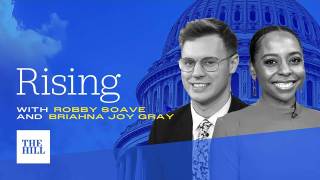In 1944, FDR was reported to be in excellent health

Should President Joe Biden win reelection next year, he will be 82 on his second Inauguration Day. Ronald Reagan was 73 at the same milestone in 1985. Donald Trump, should he defeat President Biden, would be 78 when he begins his nonconsecutive second term.
Back on Feb. 16, Dr. Kevin C. O’Connor, physician to the president, wrote that Biden “remains a healthy, vigorous 80 year old male, who is fit to faithfully execute the duties of the Presidency, to include those of Chief Executive, Head of State and Commander in Chief.”
Later that month, First Lady Jill Biden told CNN that her husband’s recent trip to Ukraine demonstrated that he still has the energy for one more presidential campaign and another four years in office. She subsequently dismissed as “ridiculous” a suggestion from GOP candidate Nikki Haley that political leaders over 75 take a “mental competency test.”
Yet there are concerns among Democrats and across the entire electorate that Biden will not have the stamina, mental and physical, to endure the challenges of a second term. In that light, it’s instructive to look back at a similar situation America faced eight decades ago.
When President Franklin D. Roosevelt turned 62 on Jan. 30, 1944, the New York Times reported that Vice Admiral Ross T. McIntire, the president’s personal physician, believed “the chief executive was in better health then at any time since he entered the White House.” In an April 4 update, the doctor told reporters “the greatest criticism we can have is the fact we haven’t been able to provide him with enough exercise and sunshine.”
And several weeks before the 1944 election, with FDR running for a fourth term, McIntire doubled down, stating, “The president’s health is perfectly O.K. There are absolutely no organic difficulties at all.”
In fact, nothing could have been further from the truth.
By 1944, FDR’s health was deteriorating rapidly. At the end of March, a cardiologist diagnosed congestive heart failure, a condition that had been aggravated by McIntire’s disregard of recurring symptoms. The president’s work schedule was curtailed, he was treated with digitalis — and was told to smoke no more than 10 cigarettes a day.
Roosevelt was also suffering from acute hypertension. The day of McIntire’s optimistic April 4 statement, his blood pressure was 226/118. And on August 12, in Bremerton, Oregon, he suffered a mild heart attack while delivering a speech.
FDR’s accomplishments in the face of his polio-induced disability had, ironically, resulted in his being given the benefit of the doubt on questions about his health. Following American entry into World War II, the press had little appetite for investigating the fitness of the commander in chief.
More perplexing was the attitude of the first lady. In the words of biographer Doris Kearns Goodwin, Eleanor Roosevelt, preoccupied with her travel-filled role as her husband’s domestic policy alter ego, “was reluctant to admit even to herself that Franklin was really sick.” She ascribed his fatigue to “psychological factors.” It was their daughter Anna who finally insisted on the March 28 pulmonary assessment.
There is no evidence that Roosevelt was ever told about his condition, nor that he ever inquired.
One group not dissuaded from fearing the worst were the Democratic Party’s leaders. By 1944, dissatisfaction with Vice President Henry Wallace, on the ticket in 1940 when Roosevelt won his unprecedented third term, was widespread. Wallace was seen as too far left of the mainstream of the party.
Wallace was also dogged by rumors of Soviet sympathies (which, after the war, were proven to be accurate). After much wrangling with FDR, and some manipulation of the July convention agenda, the party bosses succeeded in nominating a much safer fourth-term running mate, Sen. Harry S. Truman of Missouri.
In June, New York Gov. Thomas E. Dewey tiptoed around the issue of FDR’s health when he accepted the Republican presidential nomination. He declared that the administration had become old and tired: “Does anyone suggest that the present national administration is giving either efficient or competent government? … No, all they tell us is that in its young days it did some good things. That we freely grant. But now it has grown old in office. It has become tired and quarrelsome.”
Historian Michael Davis notes that Republicans tried to raise FDR’s health as an issue, but it never gained traction with the public. A poll conducted in early September indicated that only 1.6 percent of those surveyed would switch to Dewey because of the president’s health. In October, that number fell to 0.5 percent. If voters had any inkling of FDR’s condition, they too were in a form of denial. In the end, with no coverage of the issue by the press, Dewey decided not to employ the health issue directly, “fearing a backlash in the wartime atmosphere.”
Roosevelt won reelection in November with 53.4 percent of the popular vote to Dewey’s 45.9 percent. The 7.5 point margin was the narrowest of his four election victories (the Electoral College vote was 432-99).
The lack of candor surrounding FDR’s condition persisted to the very end. On April 12, 1945, following his fatal cerebral hemorrhage in Warm Springs, Georgia, Admiral McIntire told the Times that “this came out of a clear sky … His optimistic reports of the president’s health, he declared, had been completely justified by the known tests.” As Washington rallied around Truman, those statements received little scrutiny.
Today, the health of a president is subject to coverage that was inconceivable 80 years ago. But questions can be raised regarding the counsel Joe Biden is receiving from physicians, family and advisers regarding his fitness for four more years. And in contrast with 1944, there are no party bosses with the clout to jawbone the president into replacing the unpopular Kamala Harris on the ticket.
The 2024 campaign will undoubtedly be one filled with rancor. Unlike the race in 1944, the health of the candidates will be fair game.
Paul C. Atkinson, a former executive at The Wall Street Journal, is a contributing editor of the New York Sun.
regular post copyright









